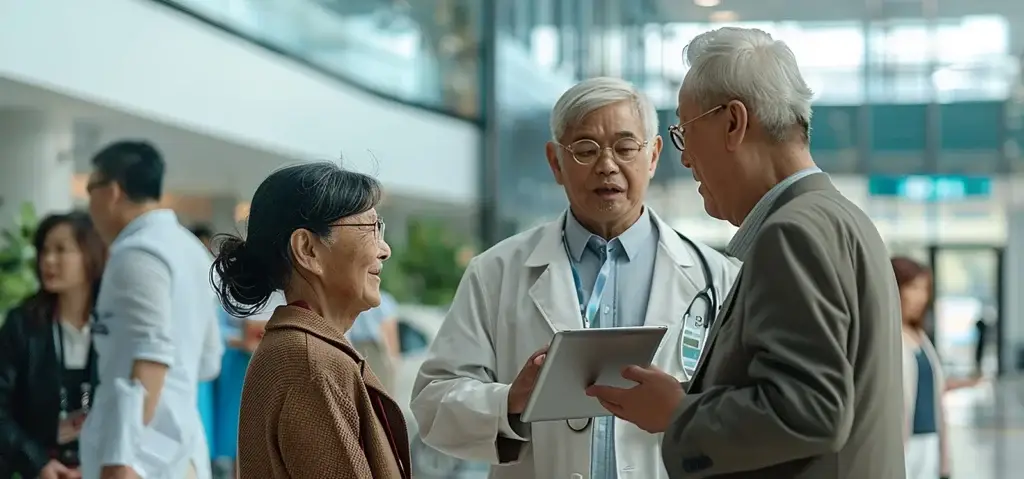
How to Conduct a Medical Test in Japan:
Kenkō Shindan (健康診断) and Teiki Kenshin (定期検診)
Living, working, or studying in Japan often requires a medical check-up “Medical Test”. You may hear the terms Kenkō Shindan (健康診断) or Teiki Kenshin (定期検診). These are structured health examinations designed to monitor your health and detect conditions early.
At MedicTranslate, we understand that navigating Japan’s healthcare system in a new language can be stressful particularly if you need to do your “Medical Test”. Here’s a practical guide to help you understand how medical check-ups work in Japan.
1. What Are Kenkō Shindan and Teiki Kenshin?
Kenkō Shindan (健康診断): A general health check.
Required for school admission, employment, visa applications, or as part of routine care.Teiki Kenshin (定期検診): A periodic/annual medical check-up.
Mandatory once a year for company employees under Japanese labour law.
Other related options:
Ningen Dock (人間ドック): A comprehensive, full-body health check (1–2 days, very detailed).
Specialized Kenshin (検診): Focused screenings (e.g., cancer, diabetes, heart disease), often subsidized by local governments.
2. Where to Get a Health Check
Hospitals & Clinics: Offer standard and advanced health check packages.
Employer-arranged facilities: If employed, your company usually books and pays for your Teiki Kenshin.
Municipal programs: City governments issue coupons for screenings such as cancer checks.
3. What to Expect: Step-by-Step Process
Reservation – Book in advance via phone or online. Employers may handle this for staff.
Medical Questionnaire – Fill in details about your lifestyle, symptoms, and medical history (usually in Japanese).
Check-up Procedures – Common tests include:
Height, weight, BMI
Vision and hearing
Blood pressure
Chest X-ray (for TB, lung conditions)
Urine test (sugar, protein, blood)
Blood test (cholesterol, liver, kidney, blood sugar, anemia, etc.)
ECG (heart rhythm)
Doctor consultation
Additional options may include endoscopy, ultrasound, mammogram, or cancer screenings depending on your age and health needs.
Results –
Same-day summary (basic results)
Full report mailed within 1–3 weeks (often Japanese-only)
Follow-up advice if abnormalities are detected
4. Cost of a Health Check
Employer-sponsored Teiki Kenshin: Usually free for employees.
Municipal check-ups: Subsidised, typically only a few thousand yen.
Private Ningen Dock: ¥30,000–¥100,000+ depending on the package.
5. Things to Keep in Mind
Language barrier: Many clinics only provide results in Japanese. Some international hospitals (Tokyo, Osaka, Kobe) offer English support.
Fasting: Often required for blood tests. Check instructions before your appointment.
Insurance: National Health Insurance does not cover routine check-ups, but employers and municipalities provide subsidies.
Visa requirements: For certain visas, specific medical certificates (such as tuberculosis screening) are required.
6. How MedicTranslate Can Help
At MedicTranslate, we assist foreigners in Japan by:
Translating your medical results into English or other languages
Helping you book appointments at foreigner-friendly clinics
Preparing documentation required for schools, employers, or visa applications
Offering medical interpreters to accompany you during your check-up
Key takeaway: Regular medical check-ups in Japan are efficient, well-structured, and essential for staying healthy. With MedicTranslate’s translation and support services, you don’t need to worry about language barriers or complex procedures.
